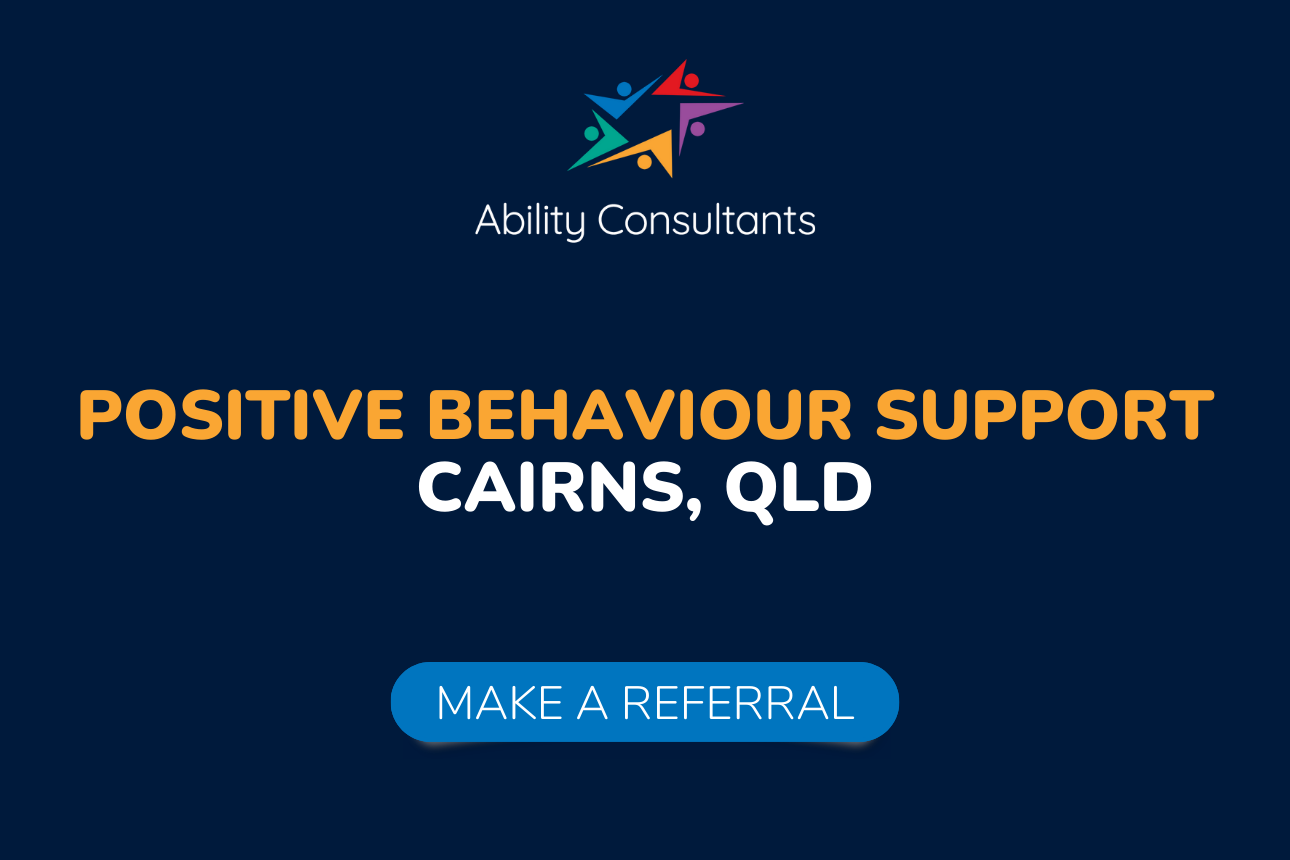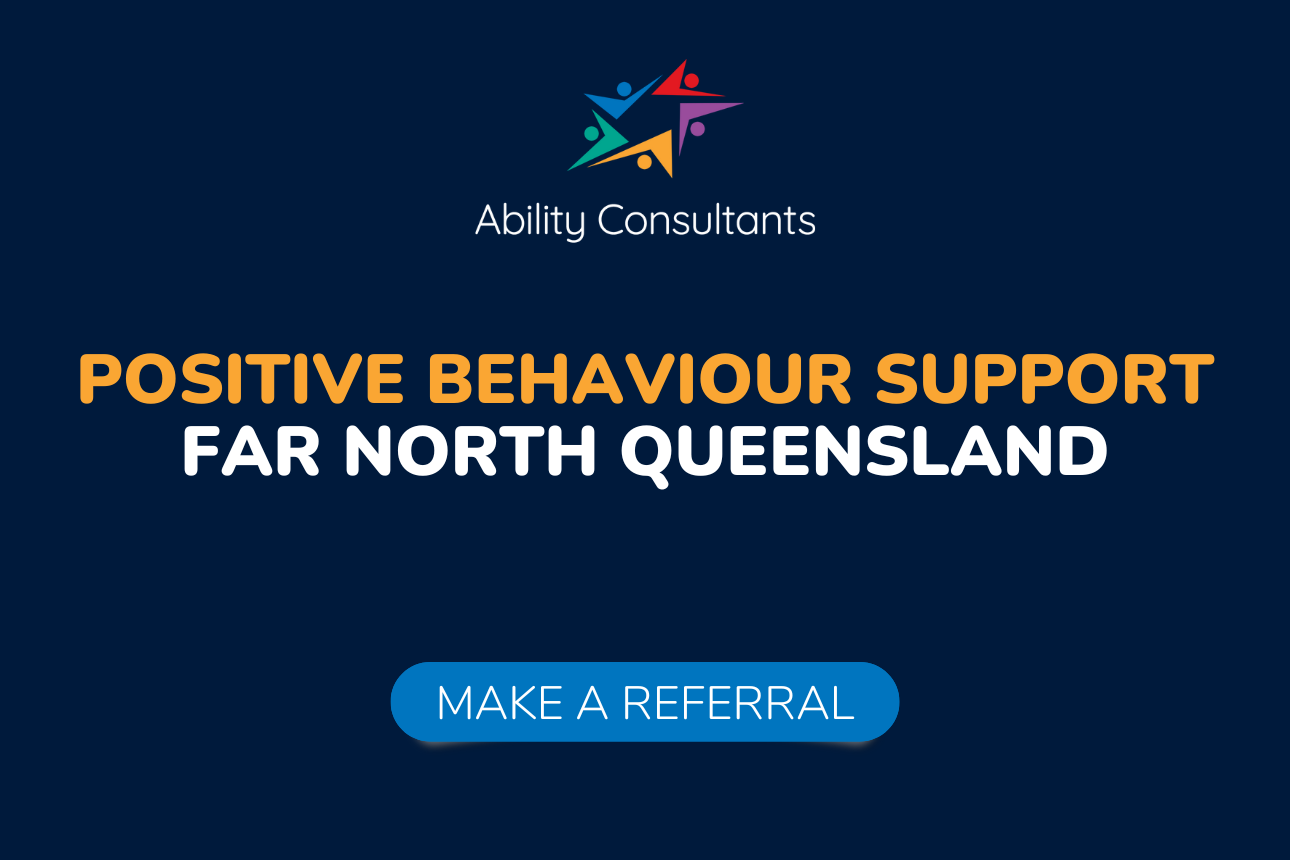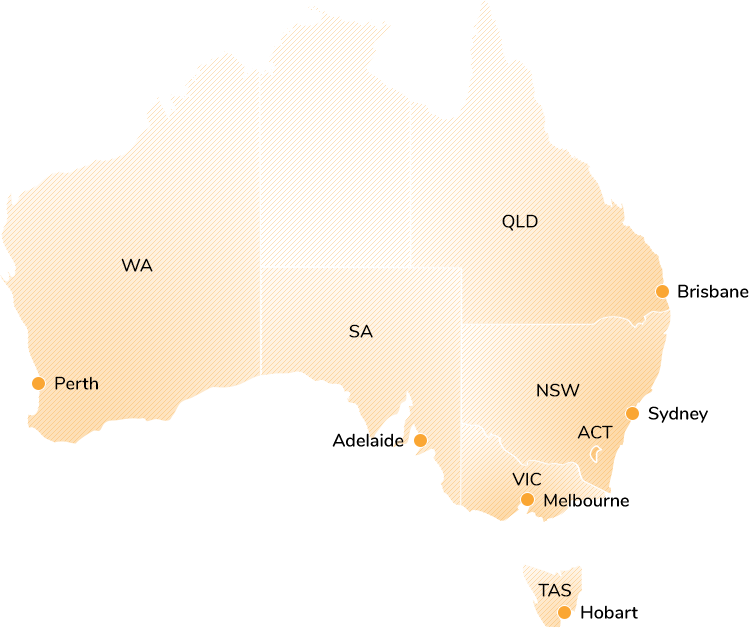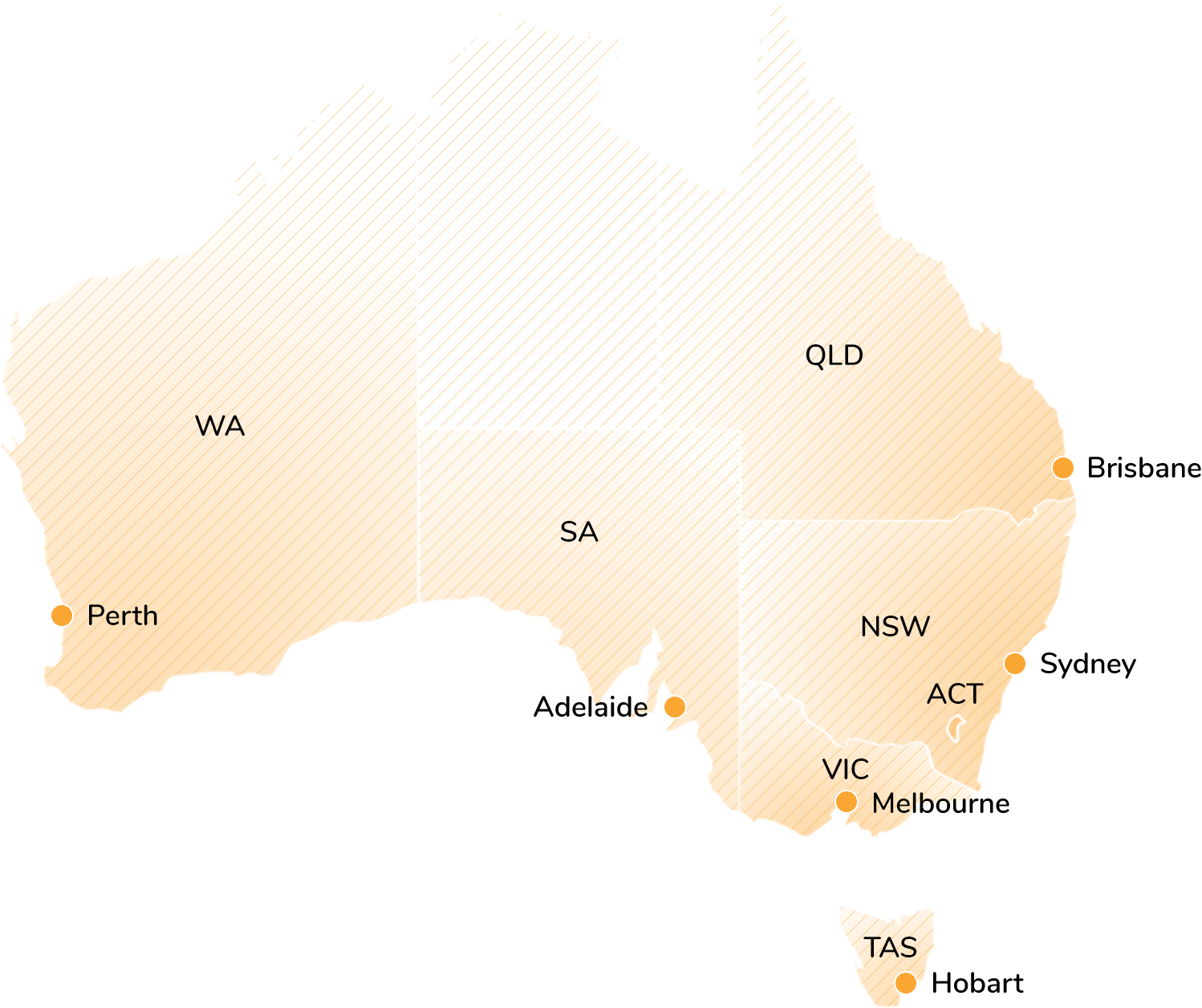Learn more about Positive Behaviour Support Plans in Cairns, with behaviour support practitioner, Sam Pugh

Are you looking for a Positive Behaviour Support Plan in Cairns? Get started by making a referral on our website.
NDIS participants and their families often ask what a Positive Behaviour Support plan is and how it’s developed. Today, Cairns behaviour support practitioner, Sam Pugh, tells us more about PBS plans, how they’re developed, what they include and what it means to be person-centred.
Meet Sam Pugh, Positive Behaviour Support practitioners in Cairns
Hi Sam, it’s great to have you on our team in Cairns. Tell us about you.
Originally from Northern Ireland, I moved to Cairns nearly seven years ago and instantly fell in love with both the welcoming community and the tropical climate. I'm currently studying a master’s in occupational therapy, driven by a lifelong passion for helping others achieve their goals. This passion was ignited by my experience growing up with a sister who has Autism and challenging behaviours, which gave me a unique understanding of the importance of empowerment. I have also gained experience working with individuals with Fetal Alcohol Spectrum Disorder (FASD), ADHD, and Autism.
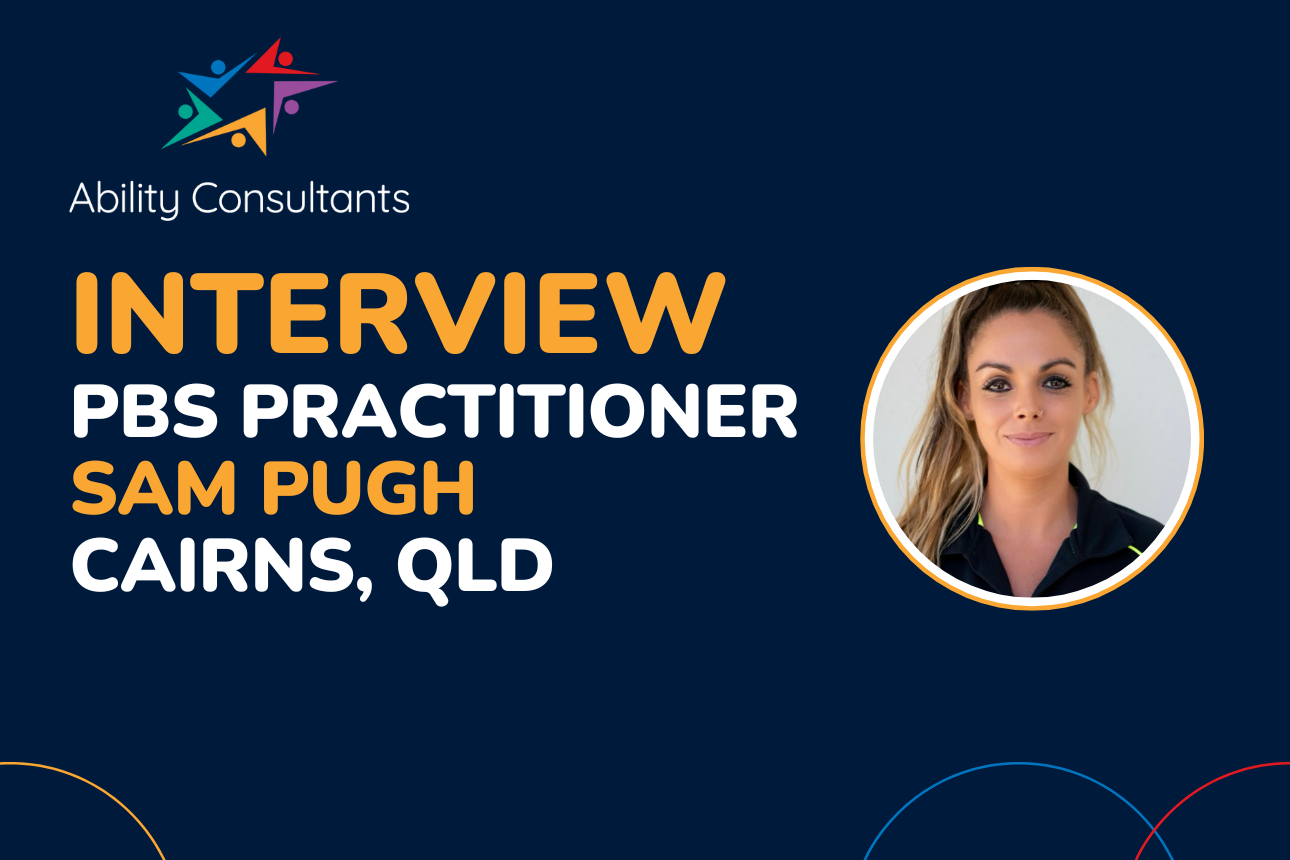
What do you love most about living in Cairns?
I love the heat! I moved from cold wet and windy Northern Ireland :) I also love being outdoors, walks on the beach, paddleboarding on the lakes and all the amazing wildlife… when I’m not hiding from all the snakes! I also love the community!
Can you tell us about your favourite accessible recreation areas south of Cairns?
There are lots of accessible recreation areas in Cairns, but my favourite accessible recreation south of Cairns would be Lake Eachem! Really fun, great for getting in the water on a hot day and a nice picnic.
How has your experience supporting individuals with disabilities influenced your approach to Positive Behaviour Support?
My experience supporting people with disabilities has given me insight into the importance of person-centred approaches: to be individualistic in practice, to focus on needs and desired goals of a person. I focus on bringing strategies to each person's unique strengths and preferences, ensuring relevance and empowerment in support. An individualistic perspective allows for better engagement in bringing meaningful, positive change to life.
Positive Behaviour Support in Cairns
How would you describe Positive Behaviour Support to someone who may not have heard of it before?
Positive Behaviour Support is a way to help people by understanding their behaviour and finding out what they’re trying to communicate. It focuses on teaching new skills and encouraging positive actions. The goal is to improve a person’s quality of life and help them feel happier and more connected to others.
Do you support NDIS participants all over Cairns and Far North Queensland?
Yes, I provide Positive Behaviour Support all over Cairns from Palm Cove to Gordonvale and surrounding areas including Atherton, Innisfail, Babinda, Mareeba, Yarrahbah and Mossman.

Positive Behaviour Support Plans in Cairns
Tell us how a Positive Behaviour Support Plan (PBSP) can improve a person’s quality of life.
A Positive Behaviour Support Plan improves an individual’s quality of life by identifying the root causes of behaviours of concern and targets teaching new skills with positive alternatives that may ensure independence. A Positive Behaviour Support plan creates supportive environments and nurtures meaningful relationships that help the individual connect, participate and contribute within the community in which he or she lives.
What does a Positive Behaviour Support Plan actually include?
A Positive Behaviour Support (PBS) Plan includes:
- Assessment: Understanding the person's behaviour and strengths and any root causes or triggers for behaviours of concern.
- Goals: Setting clear, achievable targets for positive behaviour.
- Strategies: Planning ways to encourage positive behaviour and teach new skills.
- Crisis plan: Outlining steps for keeping everyone safe during difficult moments.
- Monitoring: Keeping track of progress and making adjustments as needed.
- Teamwork: Involving family and support staff in the process.
- Cultural awareness: Considering the individual’s cultural background and needs.
What does it mean to be person-centred and what steps do you take to make sure each behaviour support plan is person-centred?
Being person-centred means placing the individual’s unique needs, preferences, and values at the forefront of their support plan. To ensure each behaviour support plan is person-centred, I take steps to understand the person’s lifestyle, culture, and likes by gathering input directly from them, assessing their strengths and challenges, and tailoring interventions accordingly. I also involve their support network, set meaningful and relevant goals, and regularly review the plan based on feedback.
This approach is important because it empowers individuals, fosters their engagement, and leads to better outcomes. By recognising their lifestyle, cultural background, and personal interests, we create a supportive environment that respects their dignity and promotes positive change.
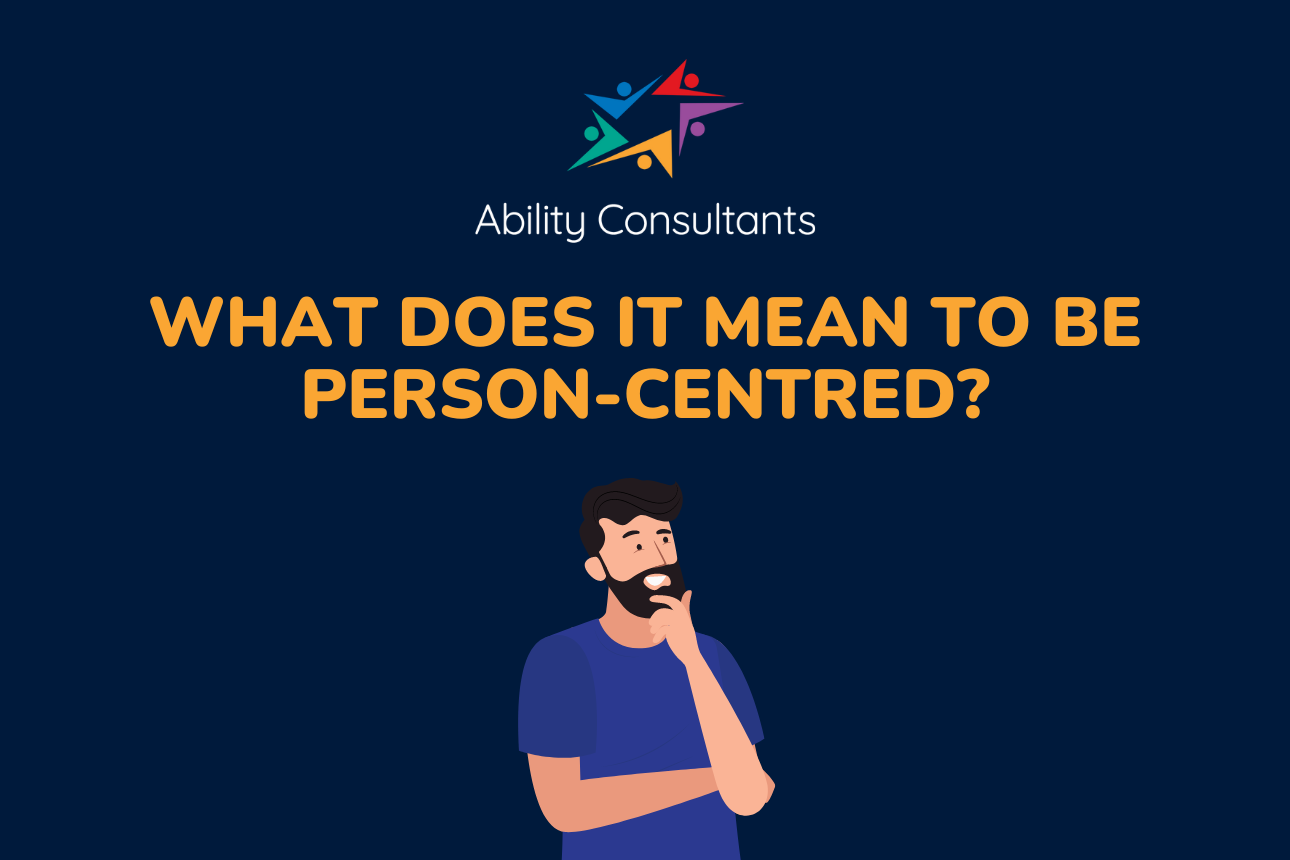
How is a behaviour support plan actually implemented?
When funding allows, a behaviour support plan is implemented through the following steps:
- Training support team: Ensure everyone involved understands the plan and its strategies.
- Consistent application: Apply the strategies consistently across all settings.
- Teaching skills: Actively teach the individual new skills and alternative behaviours.
- Monitoring progress: Regularly track and record the individual’s behaviour and progress.
- Feedback and adjustment: Gather feedback from the individual and support team, adjusting the plan as needed.
- Communication: Maintain open communication among all team members and the individual.
These steps help create a supportive environment that promotes positive behaviour.
Can you tell us about a specific behaviour of concern and how a PBS plan could help?
One specific behaviour of concern could be frequent outbursts of anger in a classroom setting. A Positive Behaviour Support plan could help by first identifying triggers for the outbursts through assessment. A trigger might be difficulty understanding given tasks or difficulties with environmental stressors.
Next, the plan would include teaching the individual coping strategies, such as deep breathing or using a stress ball. Proactive strategies, such as modifying the classroom environment or schedule, would be implemented to reduce stressors.
Positive reinforcement would encourage appropriate behaviours, and regular check-ins would monitor progress. Overall, a person’s PBS plan would promote understanding and support, leading to a calmer classroom experience.
How to get started with Positive Behaviour Support in Cairns
How can NDIS participants in Cairns get started with Positive Behaviour Support?
The first step is to make a referral for Positive Behaviour Support on our website. You can do this anytime and you can make your own referral, or a member of your support team can make a referral on your behalf.
If you have any questions about Positive Behaviour Support, please feel welcome to call our team on 1300 694 625 or send a message using our contact form.
About Positive Behaviour Support
- What is Positive Behaviour Support?
- What is an NDIS Positive Behaviour Support plan (PBSP)?
- NDIS funding and Positive Behaviour Support
About Ability Consultants
Ability Consultants is a registered NDIS provider in Australia. We create freedom and social connection through easy access to Positive Behaviour Support. Find us in NSW, QLD, Victoria, South Australia, Tasmania and Western Australia. Visit our website to learn more about our behaviour support practitioners.



